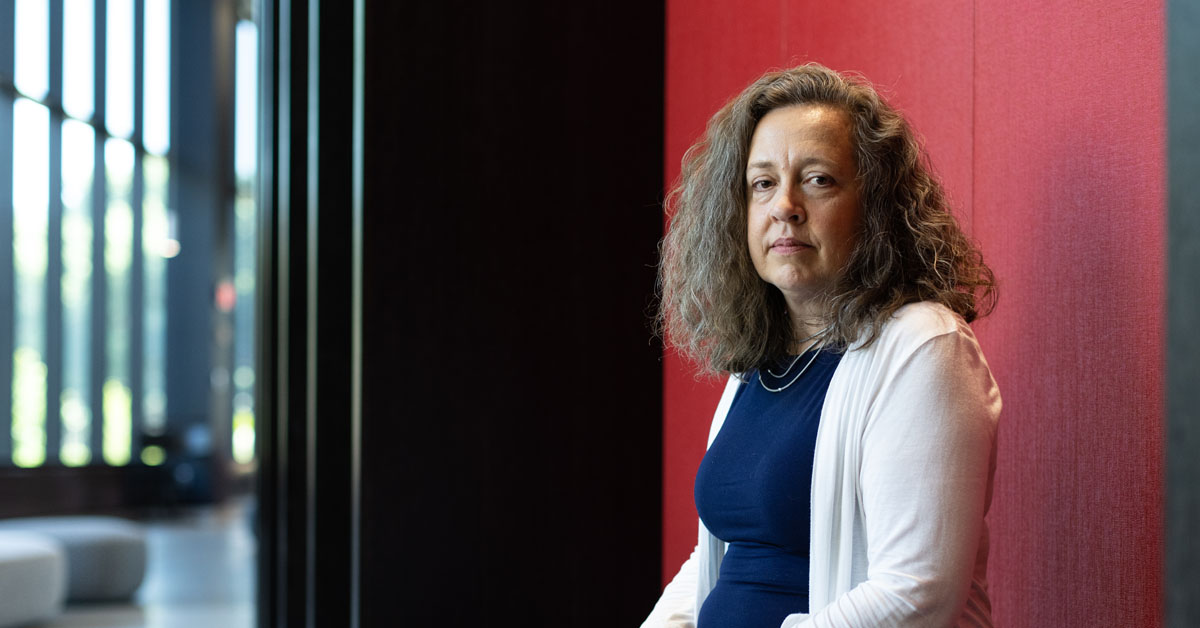Commit
Using “commit” emphasizes a pledge to prioritize antiracist efforts in making SPH a more welcome, equitable, and just organization.
Some U.S. states, cities, and counties have recently declared racism a public health crisis or emergency. What is the importance of those declarations?
“There are gaps in every health measure between white people and people of color. We can profile the results or the outcomes all we want, but we need to identify the source. When we see these disparities across income and location, we find systemic racism at their core. If we want all people in this country to have access to the same level of health, we have to address the root issue.”
What do you see as your role in antiracism?
“I am a teacher. When I’m teaching statistics, I also need to help students think about every aspect of data. They need to think about how data are collected and how we measure things. For example, in my class we have a data set about births in North Carolina from 2001. The state first collected data on the race of the mother using eight different categories and then they simplified the data into four categories for ease of analysis. But when they simplified the data, they combined women of Asian and Pacific Islander descent and American Indian women into one “other” category, so they weren’t able to see the health disparities in birth for American Indian children and women. By trying to make data easier to analyze, we risk hiding important truths.”
How are you committing on an ongoing basis to antiracism?
“Both professionally and personally, I think about language. For example, when we explore birth disparities, we show that American Indian and Black babies have a significantly lower birth weight than white babies. So where do we go from there? I need to think about how we talk about it in class. Rather than saying these women aren’t taking care of themselves, we need to talk about racism as the fundamental cause of this public health issue.”
How do you plan to stay engaged in the strategic plan?
“I want to continue to encourage my division (the Division of Biostatistics) to think about how racism affects data science and biostatistics. This year, I’m also hosting a book club with graduate students on the book, Medical Apartheid: The Dark History of Medical Experimentation on Black Americans from Colonial Times to Present, by Harriet A. Washington. The first discussion will be held on Nov. 17 and all SPH faculty, staff, and students are welcome to attend.”
Challenge
We are “challenged” to accept that racism exists and to “challenge” it when we see it.
How can we stand up to racism?
“In academia, we get really attached to big words and big ideas and proof that we know the field really well, but the big challenge is communication. I think we can stand up to racism by challenging ourselves and our students to make sure their language is accessible to all.”
What challenges do you face in prioritizing antiracist efforts?
“Two things. First, the translation from the intellectual to the doing.
Second, I have to be comfortable with being uncomfortable. The constant refrain in my brain is that people wouldn’t call me out if they didn’t think I could change. People pointing out my bias is important, and I need to be more comfortable in those moments so I can really hear them and do the necessary work to move forward.”
Change
We have to be willing to “change” and shift our beliefs, attitudes, and actions toward equity and justice.
What is your vision for an antiracist school of public health?
“I want to see a school that isn’t siloed, and I really want to see us doing community research. How do we partner in better ways with the communities around us to do the research that they need us to do?
What is the most important ingredient for culture change?
“We need to listen to our students. Our students want to do antiracist work, and that’s often what drew them to public health. Listening and responding to our students and advocating for their needs is critical for the culture change we seek.”
“Building Equity, Driving Justice: Commit | Challenge | Change” — ties all communications related to the SPH Strategic Plan for Antiracism together under one look and feel. The theme showcases our guiding principles, and it motivates and inspires. "Agents for Change" profiles support this theme and all interview questions are related to the action words, Commit, Challenge, Change, as described above.
Submit an idea for this profile series — either your own story, or one that inspires you from another SPH individual or group.

